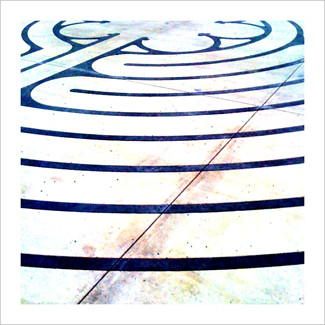by Gigi
I've admitted before that I'm the girl who moved the Ouija board. You could look me in the eye, and without blinking, my 12-year-old self would swear I didn't move the placard. Even though of course I did.
I was also known to have hidden a friend in the closet to make other kids think the house was haunted. It wasn't Halloween.
And as soon as I got my license at 16, I would scare the uninitiated with Orange County urban legend 'The Brea Bum' as we were approaching the secluded spot where he 'lived.'
These were the lies of a creative child -- or so I tell myself.
In college, while I was writing bad fiction in creative writing class, I was also doing mock political debates in politics class. During one debate, students from Pitzer (my college) and Pomona (another Claremont College in our 5-college consortium) debated each other. I assumed the accent of the politician from the state I represented. I never once broke character. There might still be former Pomona College students out there who think I've got a thick South Carolina accent.
When I'm acting -- be it in the theatrical productions I acted in during high school and college, or in the roles I assumed above -- I can lie without breaking a sweat.
But when it comes to real life, I can't lie to save my life.
If I were to lie to you right now about something serious, you'd see it written all over my face. I'm so bad at real-life lying that you'd probably see right through me if I wrote a lie that I didn't intend to write as fiction. If I ever want to tell even a white lie, I'm better off keeping my mouth shut all together.
The good news is that I can have a blast telling stories -- be it in person, on stage, or on the page -- as long as I'm assuming the role of storyteller. Anyone have a Ouija board handy?
I've admitted before that I'm the girl who moved the Ouija board. You could look me in the eye, and without blinking, my 12-year-old self would swear I didn't move the placard. Even though of course I did.
I was also known to have hidden a friend in the closet to make other kids think the house was haunted. It wasn't Halloween.
And as soon as I got my license at 16, I would scare the uninitiated with Orange County urban legend 'The Brea Bum' as we were approaching the secluded spot where he 'lived.'
These were the lies of a creative child -- or so I tell myself.
In college, while I was writing bad fiction in creative writing class, I was also doing mock political debates in politics class. During one debate, students from Pitzer (my college) and Pomona (another Claremont College in our 5-college consortium) debated each other. I assumed the accent of the politician from the state I represented. I never once broke character. There might still be former Pomona College students out there who think I've got a thick South Carolina accent.
When I'm acting -- be it in the theatrical productions I acted in during high school and college, or in the roles I assumed above -- I can lie without breaking a sweat.
But when it comes to real life, I can't lie to save my life.
If I were to lie to you right now about something serious, you'd see it written all over my face. I'm so bad at real-life lying that you'd probably see right through me if I wrote a lie that I didn't intend to write as fiction. If I ever want to tell even a white lie, I'm better off keeping my mouth shut all together.
The good news is that I can have a blast telling stories -- be it in person, on stage, or on the page -- as long as I'm assuming the role of storyteller. Anyone have a Ouija board handy?































